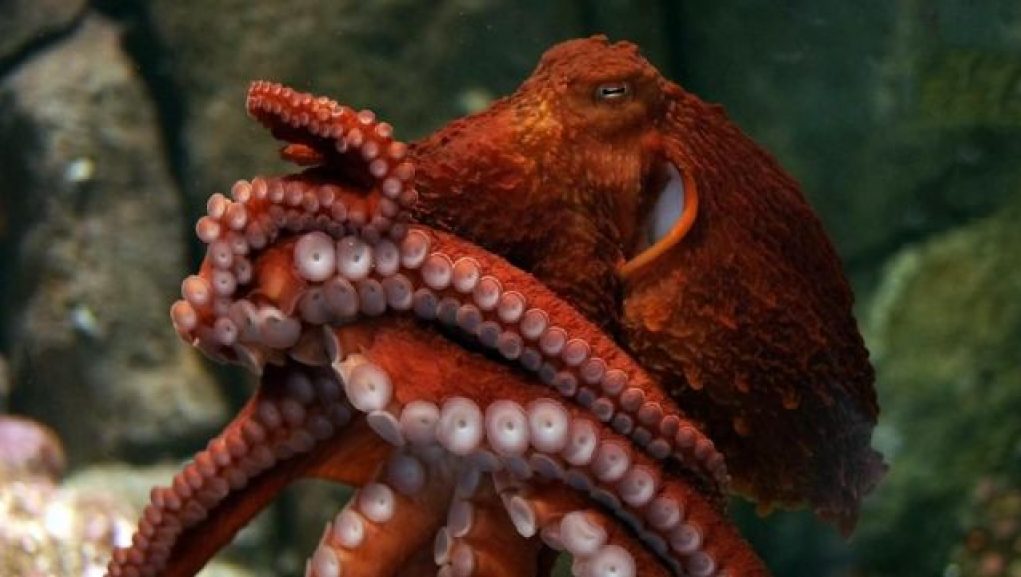Prepare to be amazed as Dr. David Scheel, a professor of Marine Biology at Alaska Pacific University, takes you on a thrilling journey in his groundbreaking book, Many Things Under a Rock. Unlike other octopus books, Scheel explores the hidden world of these incredible creatures in the Pacific Northwest, where they have thrived for millions of years.
Octopuses in cold water? It may come as a surprise, but as Scheel explains, these fascinating creatures are not limited to tropical environments. In fact, they have adapted to survive in the chilly waters of the Pacific Northwest. Scheel’s firsthand experiences and captivating storytelling in Many Things Under a Rock will leave you in awe.
Unveiling the Secrets of Octopuses
Scheel’s book is a treasure trove of captivating anecdotes and informative insights into the world of octopuses. From tracking their dens to discovering new octopus “cities,” Scheel’s research provides a fascinating glimpse into the lives of these mysterious creatures. Alongside these captivating stories, Scheel also delves into the rich Indigenous culture of the Pacific Northwest and its deep connection with octopuses.
But why is understanding octopuses’ survival in freezing temperatures so crucial? As Scheel explains, with the warming of our oceans due to climate change, these findings become even more relevant. The book sheds light on the challenges octopuses face in a changing environment and offers insights into how we can help.
Scheel and his research team are dedicated to unraveling the impact of warmer oceans on octopuses in the Pacific Northwest. Through vivid storytelling and scientific facts, Scheel’s book takes you on a journey of discovery, revealing the mysteries of octopus behavior and the ongoing research to uncover their secrets.
The Octopus’s Influence on Culture
Scheel’s research goes beyond marine biology, exploring the profound influence of octopuses on indigenous cultures in the Pacific Northwest. By sharing Native Alaskan stories, Scheel highlights the deep connection between humans and these remarkable creatures. Octopuses are seen as symbols of knowledge in native cultures, reflecting their insatiable curiosity and ability to explore every nook and cranny.
As Scheel beautifully intertwines indigenous stories with scientific research, he invites readers to appreciate the parallels between legends and scientific discoveries. The book explores the giant octopuses that feature in Alaskan Native folklore and their occasional appearances in scientific journals.
Scheel’s passion for cephalopods shines through in his meticulous research and his relationships with indigenous communities. Many Things Under a Rock is a captivating read for octopus enthusiasts and anyone intrigued by the intersection of science, history, and folklore.
Kenna Hughes-Castleberry is the science communicator at JILA (a joint physics research institute between the National Institute of Standards and Technology and the University of Colorado Boulder) and a freelance science journalist. Her main writing focuses are quantum physics, quantum technology, deep technology, social media, and the diversity of people in these fields, particularly women and people from minority ethnic and racial groups. Follow her on LinkedIn or visit her website.
Throughout history, octopuses have often been associated with mystery and the unworldly. They are highly intelligent creatures capable of problem solving, escaping predators and mimicking other animals. Recent research has started to shed light on the inner life and behavior of octopuses, and shows us how these animals can form strong relationships with humans.
The octopus is one of the oldest and most fascinating animals on the planet. They have existed for millions of years and are able to survive almost anywhere in the ocean. Unlike most sea creatures, they are highly independent, solitary animals that can hunt for their own food. They are also capable of problem solving and have been known to outwit their predator which further adds to their mysterious nature. Despite their solitary behavior, recent studies have shown that octopuses are highly social animals that can recognize individual humans and become emotionally attached to them.
These studies have also shown that octopuses learn to recognize individual humans they interact with on a regular basis. For example, a study by the the Marine Biological Station in Plymouth tested a group of octopuses who showed a preference for certain handlers over others. This suggests that octopuses are capable of forming strong emotional relationships with humans, much like cats or dogs.
In addition to forming relationships with humans, octopuses also exhibit behaviours that suggest they feel empathy for other octopuses. This is remarkable since octopuses are not usually particularly social animals. However, in captivity some octopuses will protect their tank mate from predators, even sacrificing themselves in the process. This shows that octopuses can form an emotional bond with one another, though to a much lesser extent than with us humans.
Overall, octopuses are remarkable animals with fascinating behavior. They are able to form relationships and exhibit empathy towards both humans and other octopuses. This, combined with their intelligence and mysterious nature, makes them extremely interesting and intriguing creatures to study.




















